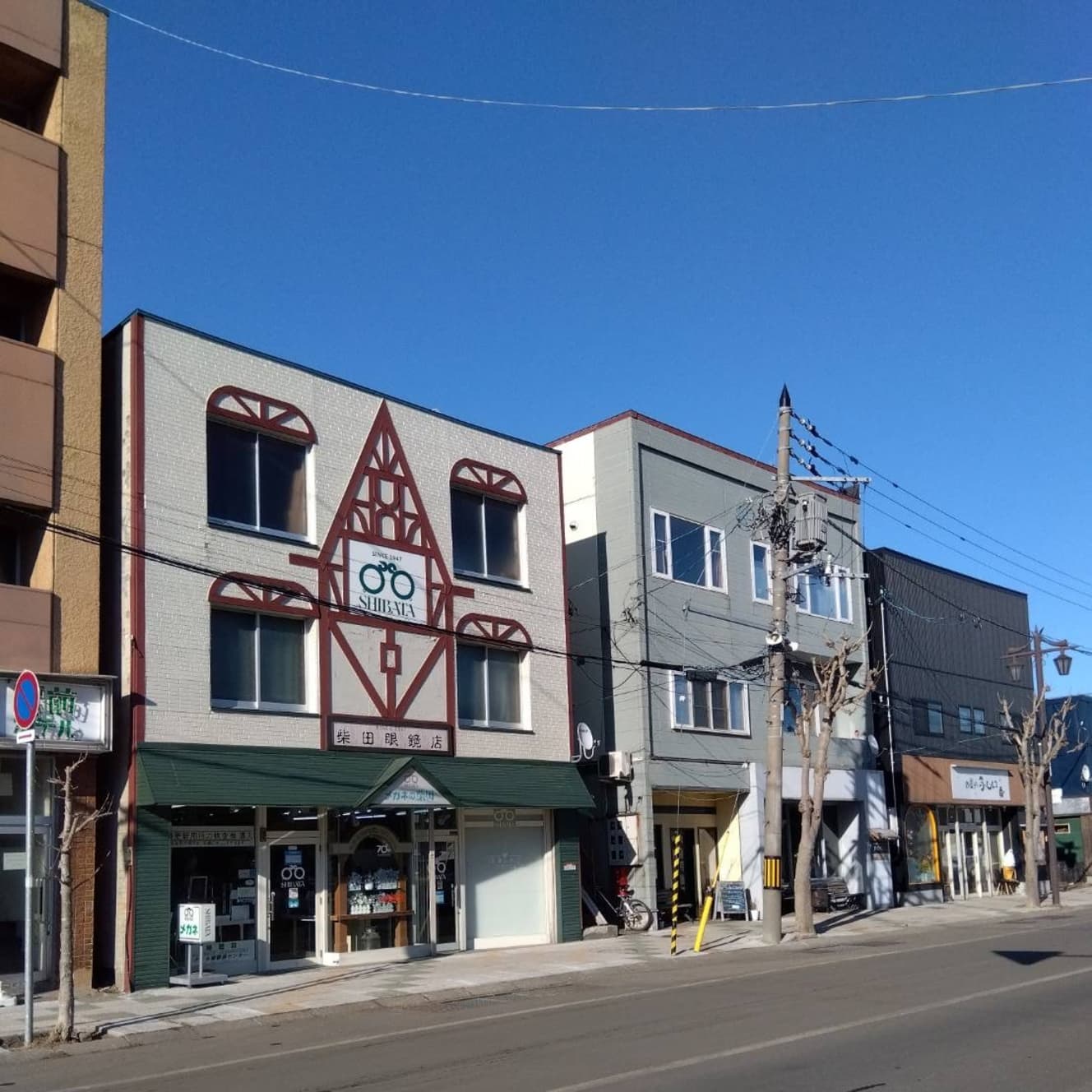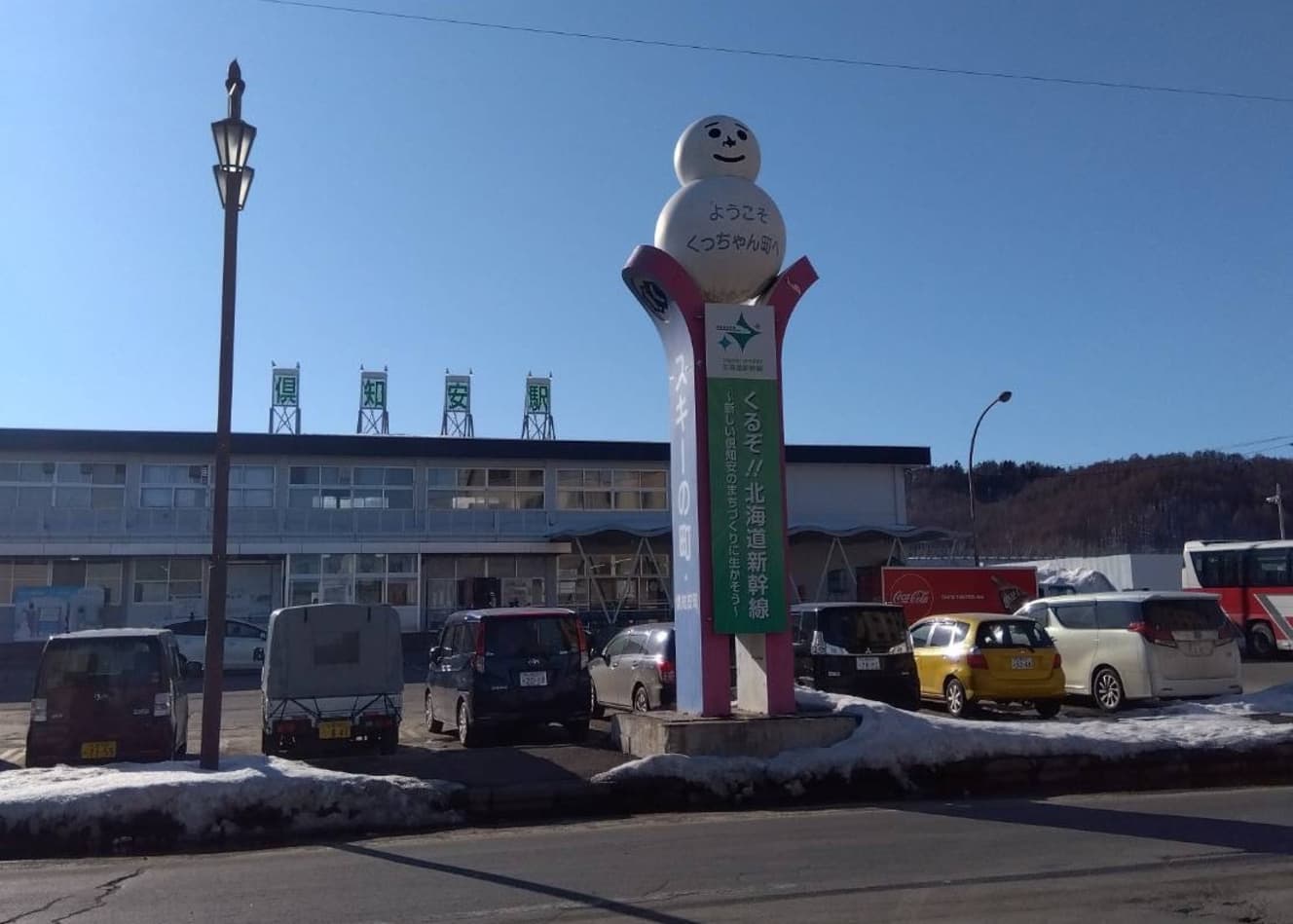Resale of Niseko’s Urban Area: Are Foreigners the Savior of Vacant Homes?
Foreign Investors Buying “Vacant Houses” and “Stores” in Front of Train Stations
The town of Kutchan in Hokkaido is home to the ski resort of Niseko, where luxury hotels and condominiums are opening one after another. While the Niseko-Hirafu resort area is booming with inbound visitors, in the urban area of Kutchan, about 7 to 8 kilometers away from the resort, “vacant houses” are being bought one after another by foreign investors.
We are seeing wealthy foreigners buying up vacant houses around Kutchan Station and empty stores in the Ekimae-dori shopping street,” says one foreign investor.
Naohisa Takiguchi, who runs a ski and snowboard store on the Ekimae-dori shopping street, says this is the current situation. Mr. Takiguchi runs a corporate real estate business on the side and is knowledgeable about the housing and retail situation in the town.

According to the plan,Kutchan station of the Shinkansen will be built in ’30, and foreign investors and business owners have been buying private houses and store properties in the city center for several years, as real estate prices in front of the station will more than double within 10 years, ” said Mr. Takiguchi.
Although the extension of the Hokkaido Shinkansen to Sapporo may be delayed due to construction delays and increased costs, it is currently scheduled to open within FY30. The time required between Kutchan and Sapporo will be reduced to about 25 minutes, less than a quarter of the time required by conventional train. It is expected to serve as the gateway to Niseko.
The Trans-Hokkaido Expressway (Goshi Expressway) is also scheduled to open and the Kutchan Interchange will be built, although the timing has not yet been determined.
Investors buy vacant storefronts in the shopping area in front of the station and rent them out to people doing business in the resort area. The stores are usually offices on the first floor and residences for the employees on the second floor.
As in any town, Kutchan’s shopping district is aging. Many owners are in business now but want to sell in a few years due to lack of successors. These people put their stores and residences up for sale on the condition that they will be vacated in two or three years, and foreigners buy them for investment purposes through real estate agents.
Some delivery and catering stores that have been operating in the resort area are now moving to the downtown area of Kutchan.
Rent in the resort area is going up rapidly, and both foreigners and Japanese are moving to the city center because they can’t afford to do business this way. They are renting properties with kitchens and delivering from the city to condominiums in the resort area.
I think prices will go up four to five times when the bullet train and expressway come through.”
Private homes are selling on the outer edges of the commercial area in front of the station and in the residential area that stretches behind the station.
The back side of the station is still cheaper than the area in front of the station. However, when the Shinkansen bullet train and expressway come through, I think prices will increase four to five times.
Foreigners are buying houses in anticipation of this and renting them out to businesses. There used to be Chinese and Taiwanese who bought a house as a vacation home, but now there are very few. The pattern is often to remodel the house they bought and turn it into a private residence or a shared house. Some of them even resell their houses for double or triple the price after remodeling them.
There are also an increasing number of cases where people who do business in resort areas buy houses not for investment purposes, but to house their staff. For example, ski and snowboard school operators are buying to use as dormitories for their instructors.
What will happen to staff dormitories in downtown offices and residential areas during the summer when employees and instructors who work in the resort area are gone? Will people stop coming and going?
The owner who bought a house to house his staff rents it out from May to October to a company that undertakes Shinkansen-related construction work or condo construction. So during that time, workers at construction sites and construction sites live there.
Many owners used to rent houses or apartments only during the winter, but since the year before last, the number of contracts for year-round rentals has increased dramatically. This is because it is difficult to find rental properties after the fall.
Nevertheless, some properties owned by foreigners have no residents, and houses with snow on the roof left on during the winter months are causing problems.
‘ People from Asia buy a house privately and leave it alone while they are not staying there. In the winter, snow piles up on the roofs, making them dangerous, and residents in the neighborhood call the town office to complain about it. The town hall then contacts the property management company to request that the snow be removed from the roof. We also receive calls, so we try to respond within a few days.

Many foreign landowners… and the local government’s redevelopment plan has run into difficulties.
As Takiguchi-san mentioned, one of the reasons why foreign investors are targeting real estate in the city center is because of the soaring land prices in Niseko. Yoshito Tanaka, who runs a ski rental and real estate leasing business and served three terms as a member of the town council until last March, said, “For example, if I were to buy a ski resort in Niseko Hirafu, I could sell it to a foreign investor.
For example, whenI returned to Niseko Hirafu in2003, the land price was 30,000 yen per tsubo, but now it is priced at 1 million yen per tsubo.
In the urban area, real estate prices are also rising due to the opening of the Shinkansen bullet train line. In anticipation of this trend, I hear that foreigners who are not involved in major projects are buying real estate from businesses on the street in front of the station.
According to a Hokkaido Shimbun report in 2008, the Kutchan Chamber of Commerce and Industry and the town of Kutchan acquired a corner of land in the shopping district in front of the station and a neighboring lot in 2003, respectively, with plans to create space for restaurants and goods sales. However, the project fell through at the beginning of 2008. The reason seems to be the influx of speculative money in anticipation of the opening of the Shinkansen bullet train, and repeated land sales, which caused land prices to skyrocket.
The Doshin also reported that “the number of absentee landlords, including foreigners, has increased over the past few years” and that “the shopping district is in a toothless state.
The street in front of the station is still in a toothless state. Most of the land and buildings in front of the station are owned by foreigners, and there are quite a few properties left unattended by foreigners who bought them.
As of the end of January, the foreign population of Kutchan increased 65.5% over the same period last year to 2,897. They account for 17.5% of the total population of 16,596. In terms of the number of households, there are 2,622 foreign-only households, 25.8% of the town’s total of 10,151 households.
I hear that some local owners are reluctant to sell or rent their stores or rental properties to foreigners, but it is a fact that foreigners own the land in front of the station and that many foreigners live and work in Kutchan Town.
We should consider them as stakeholders and come up with policies to induce them to participate in the redevelopment project. Unless we create a win-win situation for both parties, the area in front of the station will become a ghost town.

The resort area is a “colony” and the shopping district in front of the station will be a town for its employees…
Even as redevelopment of the area in front of the station remains at a standstill, construction work on the new Shinkansen station is moving forward. Last October, the Japan Railway Construction, Transport and Technology Agency presented three draft designs for Kutchan Station, and the town of Kutchan conducted a questionnaire survey of local residents. Based on the results of the survey, the town of Kutchan will narrow it down to one proposal by the end of June.
The town has set up a committee to promote the development of the station, and they are currently discussing what urban facilities and peripheral functions should be integrated with the Shinkansen station building.
The proposed urban facilities include a tourist information center on the first floor and an observation deck on the second floor with a view of Mt. When I was a councilor, this urban facility would cost about 700 million yen. That has risen to 1.3 billion yen this fiscal year. When I learned that the cost would double, I said to myself, ‘People should be able to see Mt. Yotei from the station windows or by walking around the town. We don’t need an observatory,'” said an increasing number of people. Kutchan has not been able to do so.
According to the Hokkaido Kensetsu Shimbun, in 2010, a town development study group made up of private companies compiled a rough draft of a redevelopment plan to build a 15-story complex on the north and south sides of the new station, and reported it to the town. The northern wing of the complex was to include commercial facilities, offices, a library, a spa facility, and a hotel, while the southern wing was to include stores and condominiums.
I was also shown the proposed complex, and I felt it was a constructive proposal. I think it is a very constructive proposal. I think it is very good in terms of improving the living environment and increasing the convenience of daily life.
The town, however, did not seem to show much interest in the proposal from the private sector.
A Japanese YouTube video streamer who travels around the world came to Niseko and said, ‘Niseko is becoming a colony,’ and the video has been viewed more than 150,000 times. It’s absolutely true, the resort area is like a colony for countries all over the world, and the city center is now a bedroom community for people who work in the resort area.”
In recent years, foreign interest in vacant houses in Japan has been increasing. However, the situation with vacant houses in Kutchan Town is certainly very different from the rest of Japan.
Naohisa Takiguchi is the president of Boom Co. He runs Boom Sports, a snowboard and ski store, and NTD, a real estate company.
Yoshihito Tan aka, President of Niseko Resort Service Co. After graduating from Kutchan High School, he became a freestyle skier (mogul) and competed in the Europe Cup and All-Japan competitions. Returned to Kutchan in 2003 and established the company in 2007. He has been engaged in ski rental, car rental, real estate leasing, and other businesses. He served three terms as a member of the Kutchan Town Council from 2011 to 2011.
Interview and text by: Sayuri Saito